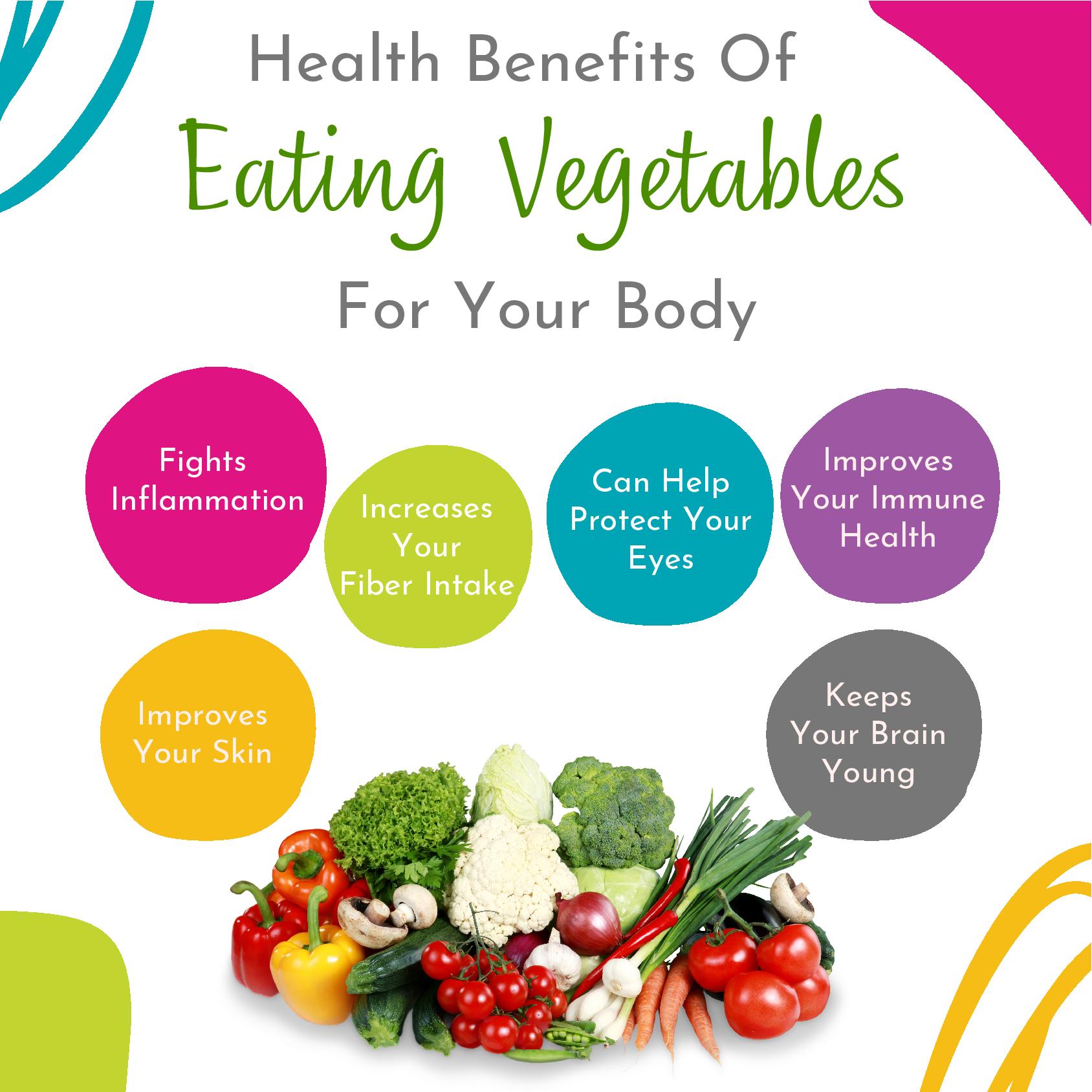It’s a well-known fact that vegetables are an essential part of a healthy diet. They are packed with essential vitamins, minerals, and fiber that are crucial for our overall well-being. Incorporating a variety of colorful vegetables into your daily meals can have a profound impact on your health. Let’s explore some of the incredible health benefits of eating vegetables every day.
1. Nutrient Powerhouse
Vegetables are a rich source of essential nutrients such as vitamin C, vitamin A, vitamin K, potassium, and folate. These nutrients play a vital role in maintaining a healthy immune system, promoting good vision, supporting bone health, and preventing chronic diseases. By consuming a diverse range of vegetables, you can ensure that your body receives the wide array of nutrients it needs to function optimally.
2. Heart Health
Including vegetables in your daily diet can contribute to a healthy heart. Many vegetables, such as leafy greens, tomatoes, and bell peppers, are high in antioxidants and phytochemicals that help reduce the risk of cardiovascular diseases. Additionally, the fiber content in vegetables can assist in lowering cholesterol levels and maintaining healthy blood pressure, further promoting heart health.

Credit: www.pinterest.com
3. Weight Management
Vegetables are low in calories and high in fiber, making them an excellent choice for those looking to manage their weight. The high fiber content keeps you feeling full for longer periods, reducing the likelihood of overeating. Additionally, the water content in vegetables adds volume to your meals, promoting satiety without excess calories.
4. Digestive Health
The fiber found in vegetables is essential for maintaining a healthy digestive system. It aids in proper digestion, prevents constipation, and supports a healthy gut microbiome. Regular consumption of vegetables can contribute to a balanced and efficient digestive process, improving overall digestive health.
5. Disease Prevention
The powerful antioxidants present in vegetables help in combating oxidative stress and reducing inflammation in the body, thereby lowering the risk of chronic diseases such as cancer, diabetes, and obesity. The diverse array of phytonutrients in vegetables offers protective benefits against various health conditions, making them an invaluable addition to your daily meals.

Credit: twitter.com
6. Skin and Hair Health
The vitamins and minerals in vegetables are not only beneficial for internal health but also for enhancing external appearance. Vegetables like carrots, sweet potatoes, and spinach are rich in vitamin A, which promotes healthy skin and vibrant hair. The antioxidants found in vegetables also help in maintaining youthful skin by combating the effects of environmental damage and aging.
7. Mood Enhancement
Consuming a variety of vegetables can positively impact your mood and mental well-being. Certain vegetables contain nutrients that support the production of neurotransmitters like serotonin, which plays a key role in regulating mood and reducing the risk of depression. Including vegetables in your diet can contribute to an overall sense of positivity and well-being.
8. Eye Health
Many vegetables, particularly those with vibrant colors such as kale, broccoli, and bell peppers, are rich in compounds like lutein and zeaxanthin, which are essential for maintaining good vision and reducing the risk of eye conditions such as cataracts and macular degeneration. Regular consumption of these vegetables can help safeguard your eyesight as you age.
9. Improved Immunity
The abundance of vitamins, minerals, and antioxidants in vegetables contributes to a robust immune system. They help fortify the body’s defense mechanisms, making it more resilient to infections and illnesses. By incorporating a variety of vegetables into your diet, you can support your immune system and reduce the frequency of falling sick.
10. Longevity
Studies have shown that individuals who consume a higher amount of vegetables tend to have a lower risk of mortality and enjoy a longer lifespan. The wealth of nutrients and protective compounds in vegetables can significantly impact overall health and longevity, underscoring the importance of making vegetables a central part of your daily dietary habits.
The Bottom Line
The numerous health benefits of eating vegetables every day are truly remarkable. Whether you enjoy them raw in salads, steamed, sautéed, or blended into smoothies, there are countless delicious ways to incorporate vegetables into your meals. By doing so, you can enhance your health, prevent disease, and enjoy a vibrant, energetic life.
Remember, the key to reaping the maximum benefits is to embrace variety and color in your vegetable choices. Aim to include a spectrum of colors on your plate, from vibrant greens and reds to deep purples and oranges, to ensure you are receiving a wide range of nutrients. Make it a point to savor the natural goodness of vegetables each day, and your body will thank you for it.
Frequently Asked Questions On Health Benefits Of Eating Vegetables Everyday
Can Eating Vegetables Everyday Improve My Overall Health?
Consuming vegetables on a daily basis can significantly enhance your overall health due to their rich nutrient content.
How Can Eating Vegetables Benefit My Weight Management Goals?
Including vegetables in your diet can support your weight management goals by providing essential nutrients while being naturally low in calories.
Are There Specific Vegetables That Can Boost My Immune System?
Yes, certain vegetables, such as bell peppers and broccoli, are packed with immune-boosting vitamins and minerals that can enhance your immune system.
Can Vegetables Help Improve Digestion?
Absolutely! Vegetables are a great source of dietary fiber that aids in proper digestion, promoting a healthy digestive system.








